The Dreamcast launch was an exciting time in gaming. Sega appeared to have learned from its mistakes and offered a console that had an astounding lineup of titles, along with the first real console-based online network for Internet play. This trio of short interviews illustrates how focused Sega was on making the Dreamcast a success in Europe and all the games and devices it was preparing to make its new machine the gamers’ choice on the continent. While unsuccessful in that endeavor, Sega at least deserves some credit for the effort to once more make it the preferred hardware maker among consumers.
This first interview appeared in the second issue of the Spanish DC Magazine (February 2000). In the conversation, Sega Europe’s Chief Operating Officer Kazutoshi Miyake opines on the Dreamcast’s launch. After graduating college in 1972, Miyake took a job at Nissho Iwai Corp, Japan’s leading trading house, where he remained until joining Sega Japan in 1993 as General Manager. His business acumen and wide knowledge of Europe propelled him through the company ranks quickly. Miyake’s responsibilities over Europe, Middle East and Asia Pacific earned him the position of CEO of Sega Europe only a year later.
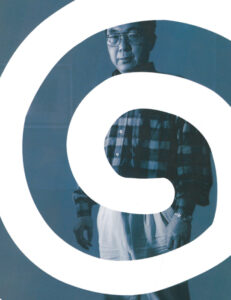 A former karate champion, Kazutoshi is a very important figure. After holding the reigns of Sega Europe for a long time, he’s stepped aside for Jean-Francois Cecillon and has become the Chief of Operations, working with the massive demand for the Dreamcast across the continent. Some days, he’s in his office from seven in the morning until eleven at night.
A former karate champion, Kazutoshi is a very important figure. After holding the reigns of Sega Europe for a long time, he’s stepped aside for Jean-Francois Cecillon and has become the Chief of Operations, working with the massive demand for the Dreamcast across the continent. Some days, he’s in his office from seven in the morning until eleven at night.
“Sometimes, I go the garden in my house to do some push-ups, sit-ups, and throw a few punches but only for fun,” he laughs before adding, “Sometimes, I joke that if I were 15 years younger, I could be a good Virtua Fighter character.”
DC Magazine: Do you think Sega’s history makes it easier for the company to know what gamers want?
Kazutoshi Miyake: When the PlayStation first started perhaps so, but after seeing the new direction consoles are going in, there’s no comparison since we have a game machine. We’re going to release a video camera for the Dreamcast and add some new functions but without ever forgetting that video games are the heart of our business. In contrast, I think Sony is pitching the PlayStation 2 as an appliance. They’ve sold 50 million consoles. We’ll compete in certain areas, but I think the two companies are going in different directions.
DC Magazine: It will be interesting to see which direction is the right one…
Kazutoshi Miyake: Definitely. Our primary obligation is to sell hardware and for that to happen we have to offer quality titles. I said a year and a half ago that we should have 20-30 games in the first six months. We’re going to have more than fifty, constantly releasing new games. If, for some reason, we can’t release a game every week, we’ll ask a third-party company to do so. That way, gamers won’t be disappointed. There aren’t many companies that can offer that amount of products, especially since it’s getting more and more expensive to design them. I can’t say exactly how many titles Sony has for the PlayStation, but I hear it’s not a lot.
DC Magazine: One of Sega Europe’s most innovative moves is working with third-party developers within the continent. Do Sega’s other offices around the world put that same priority?
Kazutoshi Miyake: Undoubtedly. This program should be viewed with a greater perspective – six months, a year. Of our first 15 titles in Europe, three came from those companies: Red Dog, Worldwide Soccer, and Toy Commander – about 20%, with the other 80% coming from Japan. We’re now working on Metropolis Street Racer with Bizarre, and we’d love to sell a million Dreamcasts by the end of March, so we need a strong title to push sales during Holy Week. That would be Metropolis Street Racer. In the U.S., Sega needed a shooter, so we gave them Toy Commander. You can see how important this console is, and not just for us here in Europe.
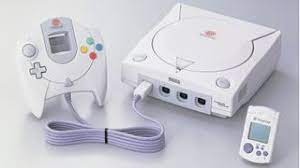 DC Magazine: Do you think you’ll go back to Japan one day?
DC Magazine: Do you think you’ll go back to Japan one day?
Kazutoshi Miyake: I don’t know. I just bought a house in London. I know its unusual for someone my age to take on a 15-year mortgage. They say I’m crazy. In Japan, it’s said that when you find an enemy crossing the river, it’s easy to escape while he’s crossing. If you just stand there ahead of him, you won’t be able to escape, and you’ll have to keep going forward. I’ve put myself in that position; I can’t escape, and if Dreamcast doesn’t succeed, I won’t be able to pay my mortgage.
* * *
This interview was conducted by Medhi Gauvin in February 2000 and published in the May/June 2000 issue of the French Official Dreamcast magazine. Gauvin spoke briefly with Sega Europe’s General Director, Jean Francois Cecillon about the recently-released Dreamcast, the upcoming DreamEye webcam, and online gaming.
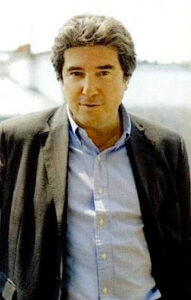 Meeting in a luxurious suite at the Majestica in Cannes, Jeffa (that’s his nickname) tells us about the DreamEye and the future of Dreamcast.
Meeting in a luxurious suite at the Majestica in Cannes, Jeffa (that’s his nickname) tells us about the DreamEye and the future of Dreamcast.
DC Magazine: You seem very satisfied with Dreamcast sales in Europe.
Jean Francois Cecillon: 700,000 consoles sold in four months is an excellent figure. For the record, Sony did not sell 500,000 PlayStations in the first six months. We still have to confirm. Our goal for 2000 is closer to two million units.
Dreamcast Magazine: What do you expect from the DreamEye?
Jean Francois Cecillon: The DreamEye is the first Dreamcast application that does not directly concern games. Many manufacturers will prefer to speak to their customers, their subsidiaries, and their suppliers through the Dreamcast. Concretely, it will boost the market for video conferencing and visual communication between people.
Dreamcast Magazine: Where is Sega in publishing games on Dreamcast?
Jean Francois Cecillon: With titles like Sonic and Soul Calibur, we have convinced players but also third-party publishers that the console is extremely reliable. Over the past month, they have almost all joined us. I’m confident about the pace of future releases and sales that will result from them.
Dreamcast Magazine: Do you plan to remarket hits at lower prices, so as to give them a second life and satisfy even more customers?
Jean Francois Cecillon: We are going to create a range of games at intermediate prices. Reducing the price of a game at once is an option. Lowering it in stages is another. We can imagine a game that comes out at 400 francs and then goes to 300 francs and then to 200 francs. We do not exclude any hypothesis. Our objective is to rally as many people as possible.
Dreamcast Magazine: We see that network gaming is gradually arriving.
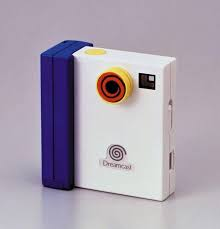 Jean Francois Cecillon: The Dreamcast is an evolutionary machine… It is above all, a games console. We didn’t want to put all our eggs in the same basket from launch. “Online gaming” comes fourth in our advertising, so we installed the Dreamcast as a games console in peoples’ minds before we really got down to network gaming. Between us, if we had broadcast poor-quality games playable over the network, you would have been disappointed. The online software planned for the end of the year will arouse both interest and surprise with their quality at any level.
Jean Francois Cecillon: The Dreamcast is an evolutionary machine… It is above all, a games console. We didn’t want to put all our eggs in the same basket from launch. “Online gaming” comes fourth in our advertising, so we installed the Dreamcast as a games console in peoples’ minds before we really got down to network gaming. Between us, if we had broadcast poor-quality games playable over the network, you would have been disappointed. The online software planned for the end of the year will arouse both interest and surprise with their quality at any level.
The big boss of Sega Japan, Shoiji Irimajiri, was also present at Cannes last February, At the conference, Irimajiri admitted that the network telephone was not really at the top for communication or for playing online. “Sega is currently working on a high-speed network,” he confided. “Agreements we signed with terrestrial channels and cable operators in Japan. We ultimately hope that information transmitted by our system moves as fast everywhere in the world. Understand that the Dreamcast modem is destined to evolve. It may disappear in favor of a fiber optic connection, We think this will happen in 2003, not before.”
Sega sees far, Sega sees big. Irimajri concluded: “Our success depends exclusively on the interactivity of our products and the way in which we will involve our own internal network. The day will arrive when everything will be done in real time. This is what we are moving towards.”
* * *
This interview with Sega Spain Director José Ángel Sánchez appeared in issue #11 of Revista Oficial Dreamcast (November 2000) and commemorates the console’s first year on the European market. While he doesn’t go into any particular depth about upcoming projects, he does a good job of showing just what an amazing lineup of titles the Dreamcast had slated for 2000. If you were a Sega fan at that time, it was exciting to see such an amazing slate of upcoming software.
Revista Oficial Dreamcast: How many consoles have you sold in our country?
José Ángel Sánchez: As of today, 100,000 people have bought a Dreamcast in Spain, and 30,000 of them have connected to the Internet for the first time thanks to our console. The results of this first year have been very positive, as they have been in line with the objectives we had set forth.
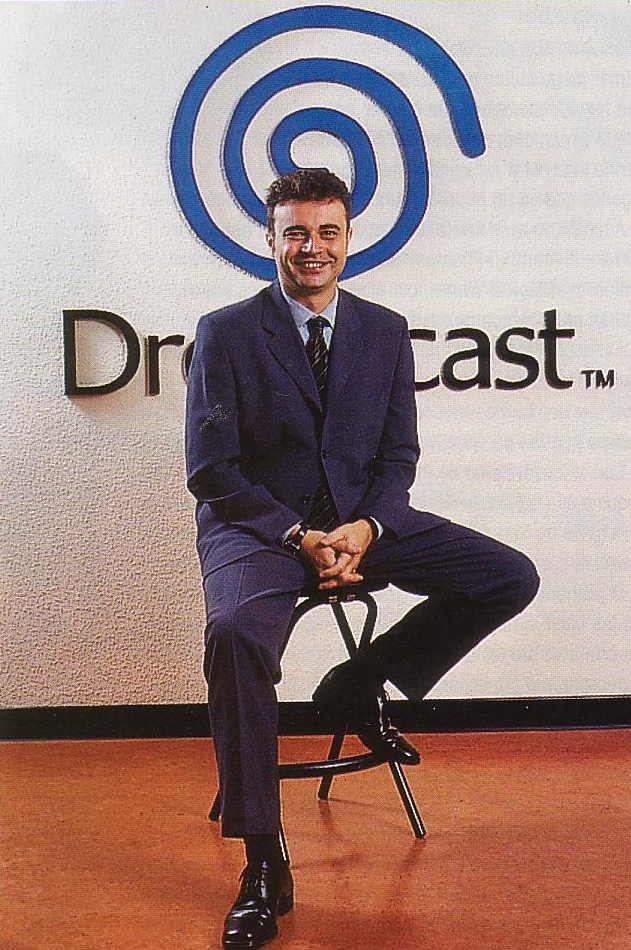 Revista Oficial Dreamcast: Initial doubts aside, do you believe that the Dreamcast is finally found a solid place in the market?
Revista Oficial Dreamcast: Initial doubts aside, do you believe that the Dreamcast is finally found a solid place in the market?
José Ángel Sánchez: Everything points to the Dreamcast being the most desired product in the gaming community. We believe that the sales from this past Christmas confirm that trend.
Revista Oficial Dreamcast: Does the drop in Dreamcast’s price have anything to do with the imminent launch of the PlayStation 2?
José Ángel Sánchez: Dreamcast has become the benchmark for graphic quality and gameplay. For only 29.990 pesetas, any fan of interactive entertainment can buy the console that offers the best games in every genre and the only one that opens a universe of online gaming possibilities.
Revista Oficial Dreamcast: Finally, what projects will Dreamcast offer users in its second year?
José Ángel Sánchez: Sega continues to bet on the creativity and innovation of its projects. Games like Virtua Tennis and Space Channel 5 will soon be joined by MSR (Metropolis Street Racer), a revolution in the racing genre, Jet Set Radio, which won the award for “Best Game” at E3 (Electronic Entertainment Expo), Shenmue, and Quake 3.
Additionally, we’re finishing up Phantasy Star Online, supporting the development of Headhunter, working on Sonic Adventure 2, and I can tell you in advance that Tetsuya Mizuguchi is immersed in a new project for Dreamcast.

Recent Comments